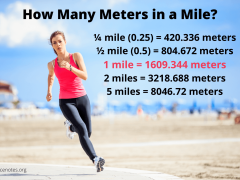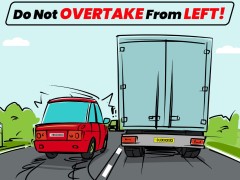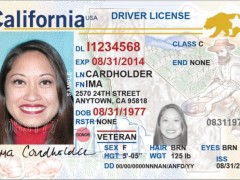wave [weiv] v. 招手
track [træk] n. 跑道
mile [mail] n. 英里
* * *
A: Is this avenue different from others?
B: Of course, there are many handprints of movie stars. The prints were pressed along the road, extending more than three miles long.
A:这条路与其他路有什么不同吗?
B:当然不同,那里有很多电影明星的手印印在沿路,延绵三英里多。
* * *
overtake [ˌəuvəˈteik] v. 从后面超越,超车
speed limit [ˈspiːdˌlimit] 限速
dream [driːm] v. 做梦,思想不集中
sign [sain] n. 标记,牌子
【派】design 设计
【扩】symbol 符号
【搭】make a sign to 对……做暗号
traffic sign 交通标志
* * *
A: What is on that sign board?
B: It is "Entrance".
A:那个标志牌上写的是什么?
B:写的是“入口”。
* * *
driving licence 驾驶执照
charge [tʃɑːdʒ] v. 罚款
* * *
A: You have to be charged and your driving licence will be suspended for your drunk driving.
B: Don't you think you've punished me too seriously?
A:由于你酒后驾车,你必须受到罚款和吊销驾驶证的处罚。
B:难道你不认为你的处罚太重了吗?
* * *
darling [ˈdɑːliŋ] n. 亲爱的(用作表示称呼)
* * *
A: Darling, change the tie. I don't think it matches the suit in color.
B: Really? I thought it's a perfect fit.
A:亲爱的,换条领带吧。我觉得它和西服的颜色不配。
B:是吗?我还以为它们是绝配呢!
verb [vi. 不及物动词]挥手;挥手示意;挥舞,挥动;飘扬,摆动,摇晃;使(头发)略呈波形;(威胁地)举起(某物) - Jessica caught sight of Lois and waved to her.
noun [可数名词]海浪;大海(the waves);(活动、行为的)爆发,浪潮;涌现的人(或物);挥手;波,波状运动;(头发的)卷曲;波浪形;(地震、爆炸的)冲击波;人浪(the wave) - Steve stopped him with a wave of the hand.
作为名词时,"wave"可以表示以下几个意思:
- 波浪:指海洋或其他水体中的波浪形态。
- 挥手:指用手臂做出挥动的动作,以示问候或告别。
- 波动:指像波浪一样的运动或形状。
- 流行潮流:指某种事物在一段时间内大量受欢迎或广泛传播。
- 电磁波:指传播能量的电磁场震荡。
作为动词时,"wave"可以表示以下几个意思:
- 挥手:指用手臂做出挥动的动作。
- 摇曳:指像波浪一样摇摆或振动。
- 示意:指通过做出特定的手势或动作来传递信息。
- 泛起、涌现:指某种情感、声音或光线突然出现或变得更强烈。
- 波及:指影响到周围的人或事物。
以下是一些例句来说明"wave"的用法:
当"wave"作为名词时:
I love watching the waves crashing against the shore. (我喜欢看浪涌向海岸的景象。)
She gave a friendly wave to her neighbor as she left for work. (她上班时向邻居友好地挥手告别。)
The crowd erupted into waves of applause. (人群爆发出一阵阵掌声。)
There is a new wave of fashion trends emerging this season. (本季度有一股新的时尚潮流正在兴起。)
The radio station broadcasts on the FM waveband. (这个广播电台在FM波段播出。)
当"wave"作为动词时:
He waved goodbye to his friends before boarding the train. (他上火车前向朋友们挥手告别。)
The flag waved in the wind. (旗帜在风中飘扬。)
The teacher waved her hand to get the students' attention. (老师挥手吸引学生的注意力。)
The scent of fresh flowers wafted and waved throughout the room. (新鲜花朵的香气弥漫并弯曲在整个房间里。)
The news of the accident sent shockwaves through the community. (事故的消息在社区引起震动。)
wave to sb. 向某人招手
"wave to sb."是指向某人挥手示意或打招呼。通常用于表示见到熟人或想要吸引某人的注意时。这个短语可以用来描述在远处或通过窗户、车窗等隔离物时进行的动作。
She waved to her friend across the street. (她向街对面的朋友挥手打招呼。)
I saw him at the airport, so I waved to get his attention. (我在机场看到他,于是我挥手引起他的注意。)
As the bus drove away, she waved to her family standing on the sidewalk. (公交车驶走时,她向站在人行道上的家人挥手告别。)
The little girl waved excitedly to her favorite singer on stage. (小女孩兴奋地向舞台上的偶像歌手挥手。)
其它用法:
Make waves: 引起骚动或引发争议。例如:"She is not afraid to make waves and speak up for what she believes in."(她不怕激起争议,为自己所信仰的事情大声疾呼。)
Ride the wave: 抓住机遇或顺应形势。例如:"He was able to ride the wave of success and launch his own business."(他能够抓住成功的机遇,创办自己的企业。)
Wave of emotion: 情感的涌动。例如:"She was overcome by a wave of emotion when she saw her long-lost friend."(当她看到失散多年的朋友时,被一股情感打动。)
Wave off: 挥手告别或取消。例如:"He waved off his friends as he boarded the plane."(他登机时向朋友们挥手告别。)
Wave down: 招手示意停下。例如:"I had to wave down a taxi because I was running late."(因为我迟到了,所以不得不招手示意停一辆出租车。)
Wave of change: 变革的浪潮。例如:"The country experienced a wave of change after the election."(选举后,这个国家经历了一股变革的浪潮。)
Wave goodbye: 挥手告别。例如:"She waved goodbye to her family as she left for college."(她上大学时向家人挥手告别。)
Make a waving gesture: 招手示意。例如:"I saw her across the street and made a waving gesture to get her attention."(我在街对面看到她,做了一个招手示意来引起她的注意。)
noun [具体名词]跑道;小道,小径;踪迹,足迹,车辙;(铁路的)轨道;(窗帘、推拉门等的)滑竿,滑轨 - A track is a piece of ground, often oval-shaped, that is used for races involving running, cars, bicycles, horses, or dogs called greyhounds.
verb [vt. 及物动词]追查,追踪;(尤指用特殊电子设备)跟踪,追踪;跟踪(进展情况);跟踪摄影,移动摄影 - If you track animals or people, you try to follow them by looking for the signs that they have left behind, for example, the marks left by their feet.
- keep track of the strange object 跟踪那个奇怪的物体
- lose track of…. 失去联系;不能跟上……的发展
- back on track 重新回到正轨:恢复正常状态或进展,重新开始朝着目标前进。
noun [专属名词]英里;一英里赛跑;很长的距离;很多,远远地;英里 - After a mile, the slope steepened.
verb [vt. 及物动词]追上, 赶上并超过(汽车或人);(发展或增长)超越,超过;突然降临于,意外发生在;(情感等)压倒,使难以承受 - It's dangerous to overtake on a bend.
Overtake someone/something: 追赶某人/某物
- The athlete overtook his opponent and won the race. (这位运动员追赶上他的对手并赢得了比赛。)
- The car overtook the slower vehicle on the highway. (这辆车在高速公路上超过了行驶较慢的车辆。)
Overtake someone in a race: 在比赛中超过某人
- The racer managed to overtake the leader in the final lap. (这名选手在最后一圈成功超过了领先者。)
Overtake someone on the road: 在道路上超过某人
- It is dangerous to overtake another vehicle on a narrow road. (在狭窄的道路上超过其他车辆是危险的。)
Overtake a milestone: 达到一个里程碑
- The company overtook its revenue target for the year. (该公司超过了年度收入目标。)
Overtake someone emotionally: 情感上超越某人
- A feeling of sadness overtook her when she heard the news. (她听到那个消息时被悲伤的情绪所充满。)
请注意,根据上下文,"overtake"也可以有其他意义,例如在交通领域中指堵塞或淹没,但在这种情况下并不是指超越。对于正确的使用,请根据句子的具体语境来理解其含义。
noun [抽象名词](运动)速度;(某事发生或进行的)速度;快,迅速;排挡,变速器;快门速度;感光度;照片曝光的时间;<非正式>安非他明;<古>成功,繁荣 - The speed of something is the rate at which it happens or is done. (
verb [vt. 及物动词]快速移动;快速运送;超速驾驶;(使)加速,促进 - If you speed somewhere, you move or travel there quickly, usually in a vehicle. (
① v. 疾驶,急行
- The police car sped past us.
- The two men sped out of the room.
② n. 速度
- at the speed of 以……的速度
- The car goes at the speed of 40 miles an hour / at 40 miles an hour.在车后的 3 speed/4 speed 表示档位
speed up 速度的增加, 加速
slow down 减速
blow up 风力的增加
noun [专属名词]梦;梦想;恍惚,出神;梦一般美妙的人或事物 - He had a dream about Claire.
verb [vt. 及物动词]做梦,梦见;梦想,想象;做白日梦,开小差;考虑,料想;白白浪费时间,虚度光阴 - Ivor dreamed that he was on a bus.
adjective [原级]理想的,完美的 - Ivor dreamed that he was on a bus.
Your future depends on your dreams. — So go to sleep!
① vt. 做梦,梦见
- I dreamed a dream in time gone by...
| dream that + 从句 | I dreamt / dreamed (that) I was in Scotland. |
|---|
② vi. 做梦,梦见(与 of,about 连用)
- dream on 继续做梦, 痴心妄想(做你的梦去吧!别痴心妄想了!)
| think of 想,考虑,想起 | Do you ever think of the girls you met at a party? 你会想起你在一个晚会上遇到的姑娘们吗? |
|---|---|
| dream of / about sth. 梦想 | I often dream of / about you. |
| dream of doing sth. 梦想 |
|
③ n. 梦;梦想,幻想
- have a dream = dream a dream 做了一个梦
- Have a good / sweat dream! 祝你做个好梦!
- Have you heard of the American Dream?
| dream boat 梦中情人, 梦寐以求的(物, 人) | Do you have dream boat? 你有梦中情人吗? |
|---|---|
| daydream 思想开小差,做白日梦 | She is daydreaming. |
noun [具体名词]指示牌,标志;迹象,征兆;示意动作,手势;手语动作;符号,记号;踪迹,踪影;(医)征,体征;神迹(主要用于《圣经》和文学作品中);<美>(野生动物的)足迹,臭迹;(占星)(黄道12宫中的)宫,星座;(数)正负号;暗号,信号;(表示某人状况或经历的)动作,反应 - Equations are generally written with an equal sign.
verb [vt. 及物动词]签名,署名;(与机构、公司等)签约;示意,打手势;打手语;用标志杆(或其他记号)表示 - All programmes will be either "signed" or subtitled.
sign your name(s) here 在这签名 (许多人加 “s” )
sign for 签收
signature n. 签名
- I need your signature. 我需要你的签名
autograph n. 明星, 名人的签名 (n. 亲笔签名;v. 签署)
noun [专属名词]驾驶执照:一种官方文件,证明持有人具备驾驶某种类型车辆的资格。 - I just want us to pray for my daughter to lose her driving licence.
verb [vt. 及物动词]充电;使…承担责任,赋予…责任;控告,指控;(公开)指责,责备;进攻,冲锋;把…记在账上;要价,收费(金额);<旧>给(枪炮)装弹;斟满(杯子) - When the police charge someone, they formally accuse them of having done something illegal.
noun [抽象名词]电量;罚款;炸药量;掌管,照管;费用,价钱;控告,指控;(书面或口头的)指责,批评;需要照管的人;命令,指示;(人或动物的)猛攻,冲锋;<美,非正式>快感,刺激;感召力,感染力;负载 - A charge is an amount of money that you have to pay for a service.
① vt. &vi. 要价,收费
- They charged us too much for repairs.
- How much do you charge for this dress?
- How much do you charge for the service.
② vt. 指控,指责
- The police charged him with murder.
- He charged Gary with speeding.
- The police charged him with murder.
③ vt. &vt. 猛攻,冲向,冲锋,向前冲
- The bull charged at the drunk.
- Suddenly a dog barked and charged at the strang
- The battery is charging 充电
noun [抽象名词]亲爱的,宝贝;亲切友好的人;宠儿,红人 - Come on, darling, we'll be late.
adjective [原级]亲爱的,心爱的;可爱的,迷人的 - To have a darling baby boy was the greatest gift I could imagine.









